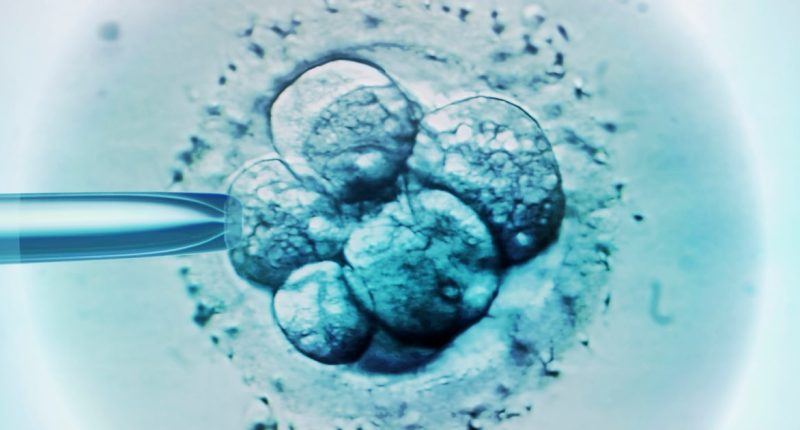
One of the most-watched races in Alabama on Tuesday is a primary for state Supreme Court chief justice.
The race has taken on increased importance amid the national uproar over the court’s recent ruling equating frozen embryos with children.
That ruling prompted several IVF clinics in the state to halt their services and sparked broader concerns that anti-abortion-rights lawmakers could go after the medical procedure elsewhere.
The current chief justice, Tom Parker, wrote the majority decision, which drew heavily on theology, even citing the book of Genesis. In the decision, he wrote that Alabama had adopted a “theologically based view of the sanctity of life” and that “life cannot be wrongfully destroyed without incurring the wrath of a holy God.”
In Alabama, state Supreme Court justices are elected in partisan races. Parker is barred from running again because he is older than the state’s mandatory retirement age for state Supreme Court justices, which is 70.
Justices Sarah Stewart and Bryan Taylor, a former state senator, are running for the Republican nomination to replace Parker as chief justice. The winner will compete against Democrat Greg Griffin, a Montgomery County circuit judge.
While the primary won’t change the partisan makeup of the conservative court (all nine judges on the bench were either elected as Republicans or appointed by a Republican governor), attention on the race has escalated in the weeks since the controversial ruling.
Stewart concurred with the majority decision.
Taylor, who describes himself as “a conservative pro-life Republican,” has said he doesn’t disagree with the ruling, but he posted on X that “we can uphold the sanctity of life without subjecting IVF clinics to lawsuit abuse.”
The top spender in the primary race has been an outside GOP group called Fair Courts America, which, as of last week, had spent about $650,000 in ads boosting Taylor, according to the Brennan Center for Justice, which is tracking spending in the race. Fair Courts America is funded largely by GOP megadonor Richard Uihlein.
In the Supreme Court ruling, the conservative court effectively ruled that embryos created through in vitro fertilization are considered children.
The court found that people can be held legally responsible for destroying embryos under a state wrongful death law declaring that an unjustified or negligent act leading to a person’s death is a civil offense.
Lawmakers in Alabama have scrambled to pass a bill to protect IVF in the wake of the ruling. Final passage of a narrowly tailored bill that would provide doctors, clinics and other health care personnel who provide IVF treatment and services with civil and criminal “immunity” is expected Wednesday.
Source: | This article originally belongs to Nbcnews.com









